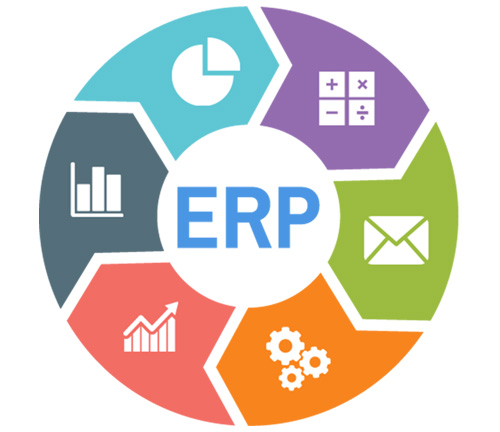ERP is a kind of software system that helps you run your entire business, including processes in finance, manufacturing, supply chain, services, procurement, and more.
An ERP system – also called an ERP suite – is made up of different enterprise resource planning applications that talk to each other and share a database.
See how today’s ERP uses digital assistants to help you focus on what matters: AI and machine learning to automate processes and predictive analytics to support real-time decision-making.
Each application (or ERP module) typically focuses on one business area. You can combine different modules to meet your needs. Finance, sales, human resources, and logistics are popular starting points. There are also modules specific to industries, from manufacturing to retail. Each module is usually licensed separately, so companies can pick and choose the functionality they want and can add on and scale as needed.

core features
Any modern ERP system will have a long list of software features based on the industry they serve and the modules they offer. However, all enterprise resource management systems should have these top 10 characteristics:
- “Single version of the truth” where data is consistent and tailored for approved users
- Up-to-date information and alerts, with self-service reporting across all operations
- Visual presentation of the information with dashboards, KPIs, and analytics to assist in quick and informed decision-making
- Choice of deployment such as cloud, on-premise, or hybrid
- Standard and advanced business processes, like, automation with AI and machine learning
- Configuration tools for processes and users (including customers and suppliers), as well as for business units, locations, and product lines for example
- Open and easy integration with other software solutions, including third-party systems
- Technology platform that is fast, proven, and stable for this long-term investment
- Technology support for the Internet of Things (IoT), security and privacy, mobile, e-commerce, and other business priorities
- Multinational support including languages and business practices, as well as cloud, training, help desk, and implementation services
Six key benefits of ERP
-
1. Higher productivity: Streamline and automate your core business processes to help everyone in your organization do more with fewer resources.
2. Deeper insights: Eliminate information silos, gain a single source of truth, and get fast answers to mission-critical business questions.
3. Accelerated reporting: Fast-track business and financial reporting and easily share results. Act on insights and improve performance in real time.
4. Lower risk: Maximize business visibility and control, ensure compliance with regulatory requirements, and predict and prevent risk.
5. Simpler IT: By using integrated ERP applications that share a database, you can simplify IT and give everyone an easier way to work.
6. Improved agility: With efficient operations and ready access to real-time data, you can quickly identify and react to new opportunities.
